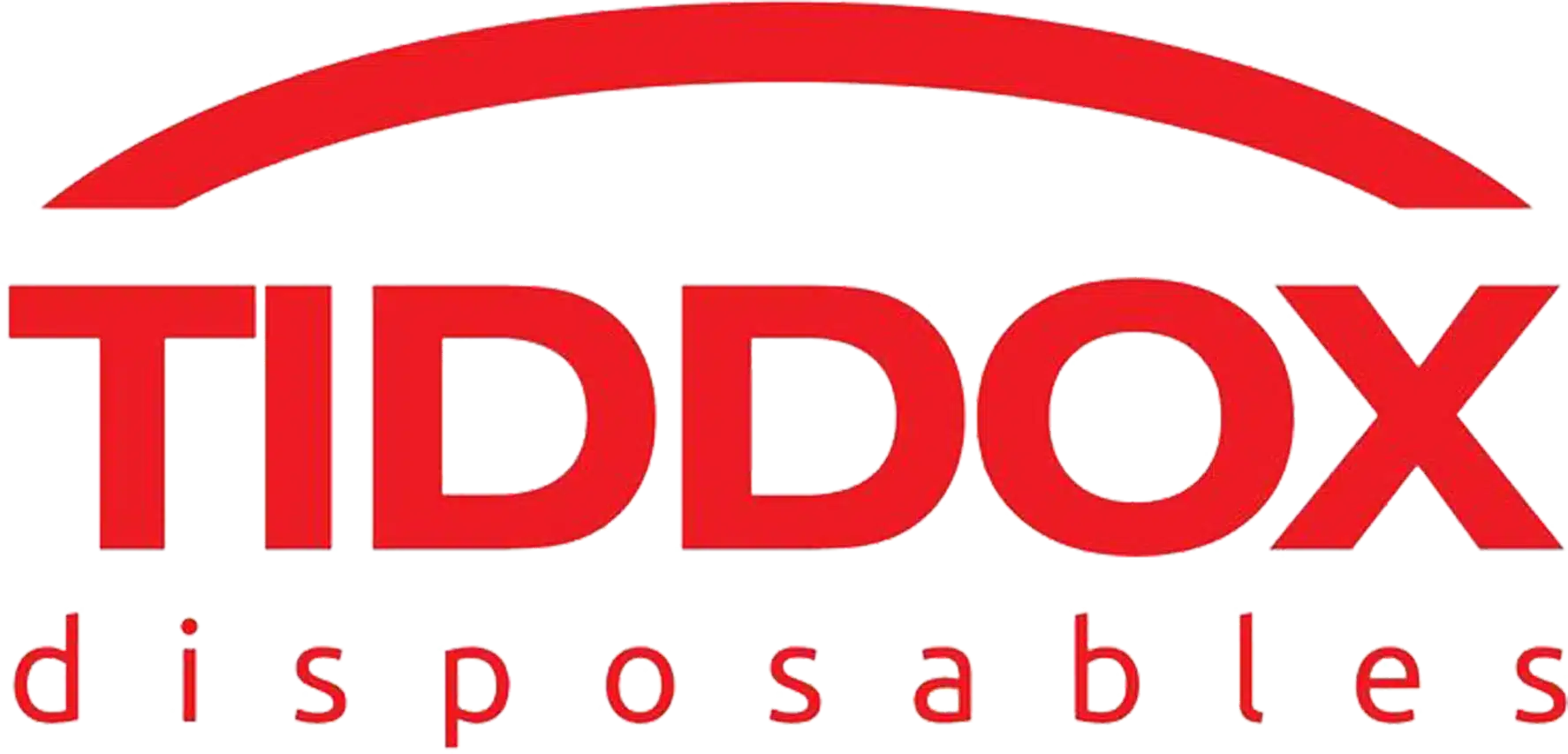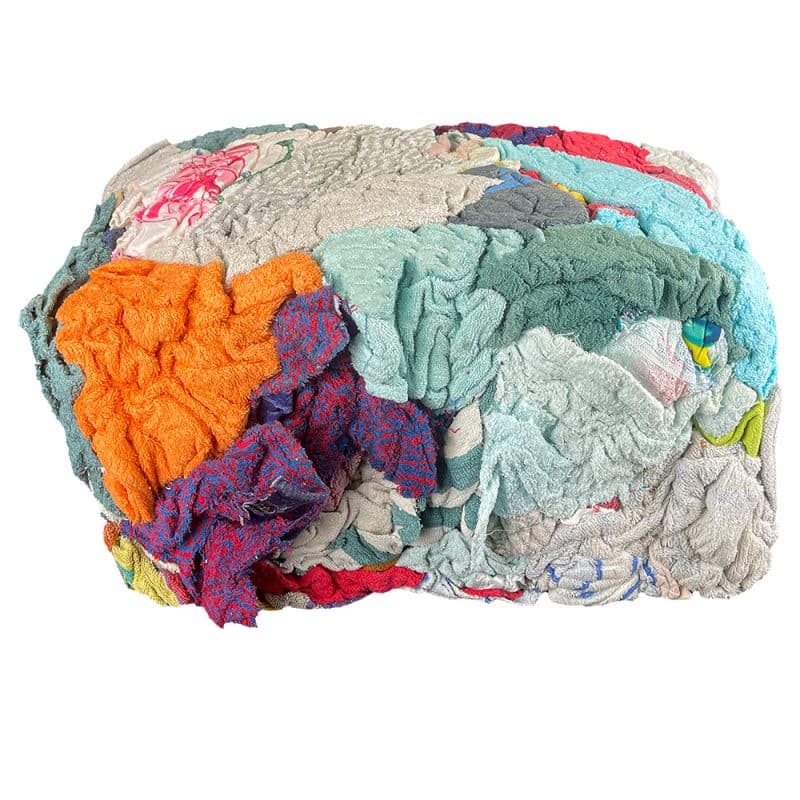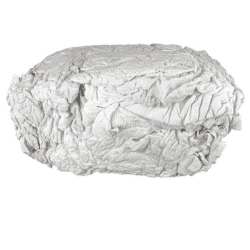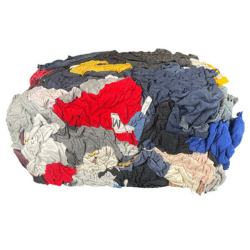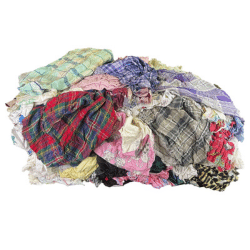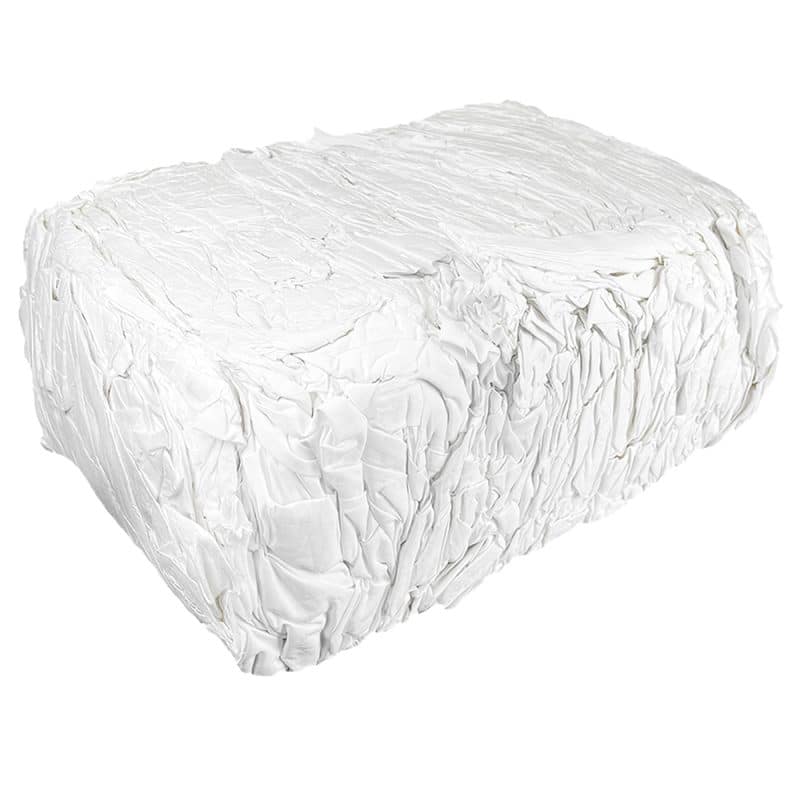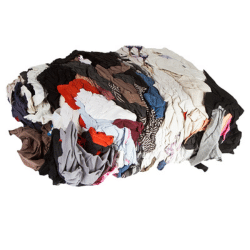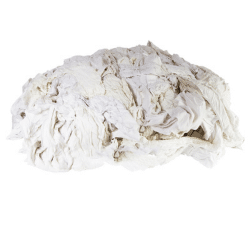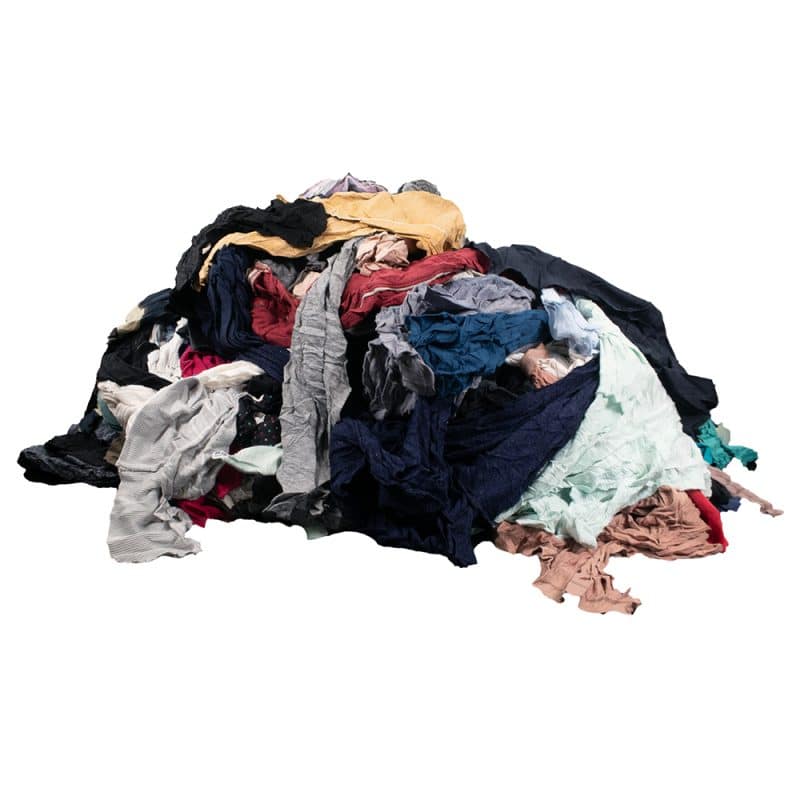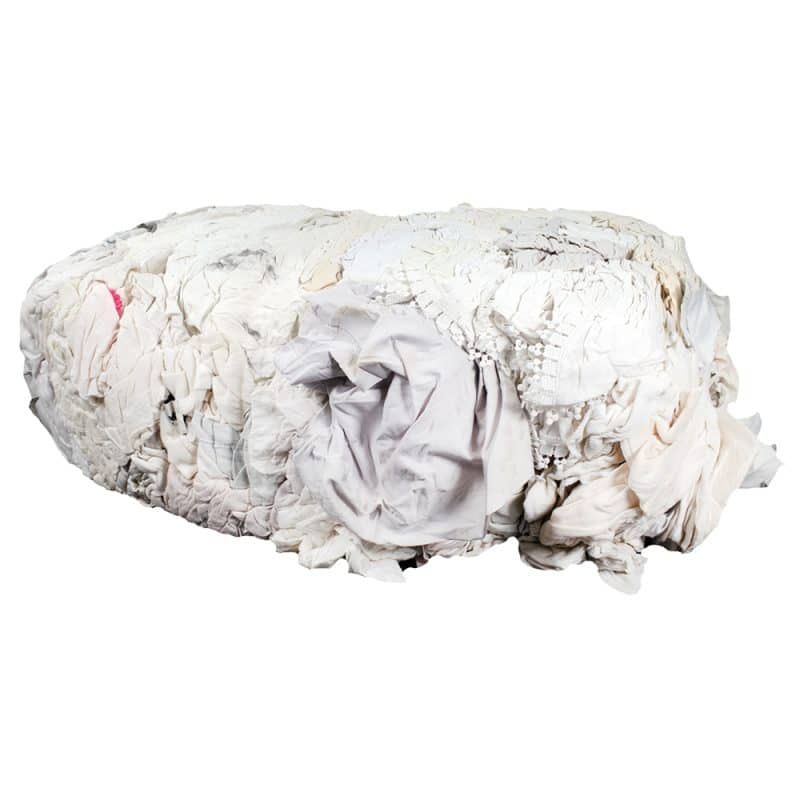TIDDOX environmentally friendly range of recycled rags offer effective cleaning while supporting sustainability. These rags are made from recycled materials, providing an eco-conscious cleaning solution without compromising performance. Choose recycled rags for a greener approach to cleaning.Recycled Rags for Sustainable Cleaning
Filter by price
Coloured T-Shirt Rags | 10kg | 15kg
Recently Viewed Products
Buy Recycled Cleaning Rags in Bulk for Sustainable Cleaning from TIDDOX
We offer a comprehensive range of recycled cleaning rags designed to meet the diverse needs of various industries. Our rags are crafted from high-quality recycled materials, providing an eco-friendly solution without compromising performance. These rags are versatile, durable, and highly absorbent, making them suitable for various cleaning tasks across multiple sectors.
In the construction industry, our recycled rags are great for wiping down tools, cleaning surfaces, and soaking up spills. They help keep the work environment safe and tidy. In the automotive industry, these rags are great for detailing cars, cleaning oil spills, and keeping machines running smoothly. They are strong and able to handle tough tasks. Hospitality businesses also find these soft but durable rags useful. They effectively clean surfaces and manage spills to meet hygiene standards.
Our recycled rags come in different types to suit specific tasks and preferences. Coloured towel rags in bulk packs are great for general cleaning tasks. White towel rags are best for jobs that need a clean, lint-free cloth. Fleecy rags are soft and very absorbent, making them suitable for delicate surfaces. Flannel rags are excellent for polishing and cleaning sensitive equipment.Additionally, white sheeting rags offer a consistent and reliable cloth for various cleaning applications.
Choosing TIDDOX recycled rags means embracing a more sustainable, environmentally conscious approach without sacrificing quality or effectiveness. By incorporating these rags into your cleaning routines, you contribute to reducing waste while still maintaining superior cleaning standards. We are committed to sustainability, so your business can clean responsibly and efficiently while supporting environmentally friendly practices.
Frequently Asked Questions
Recycled rags can be used to effectively clean spills in several applications to clean up spills, including liquid, dirt and oil. These rags also prove to be more environmentally friendly, since they are made of recycled materials.
TIDDOX provides a variety of recycled rags to suit different cleaning needs. Our offerings include white sheeting rags made from recycled linen, flannel rags, and coloured towel rags. Each type is designed for specific tasks, ensuring optimal performance and efficiency.
Yes, many of our recycled rags, such as the white sheeting rags, are soft and non-abrasive, making them ideal for cleaning delicate surfaces like glass, mirrors, and windows without leaving scratches or lint. They are also metal-detected for added safety.
Absolutely. Our recycled rags are highly absorbent and durable, making them suitable for various industrial applications, including cleaning up oils, solvents, and other spills. They are commonly used in industries such as automotive, engineering, and manufacturing.
The disposal method for recycled rags depends on what they’ve cleaned. Hazardous materials require disposal according to local hazardous waste regulations, while non-hazardous rags can be disposed of through regular waste channels. Always check local guidelines.



